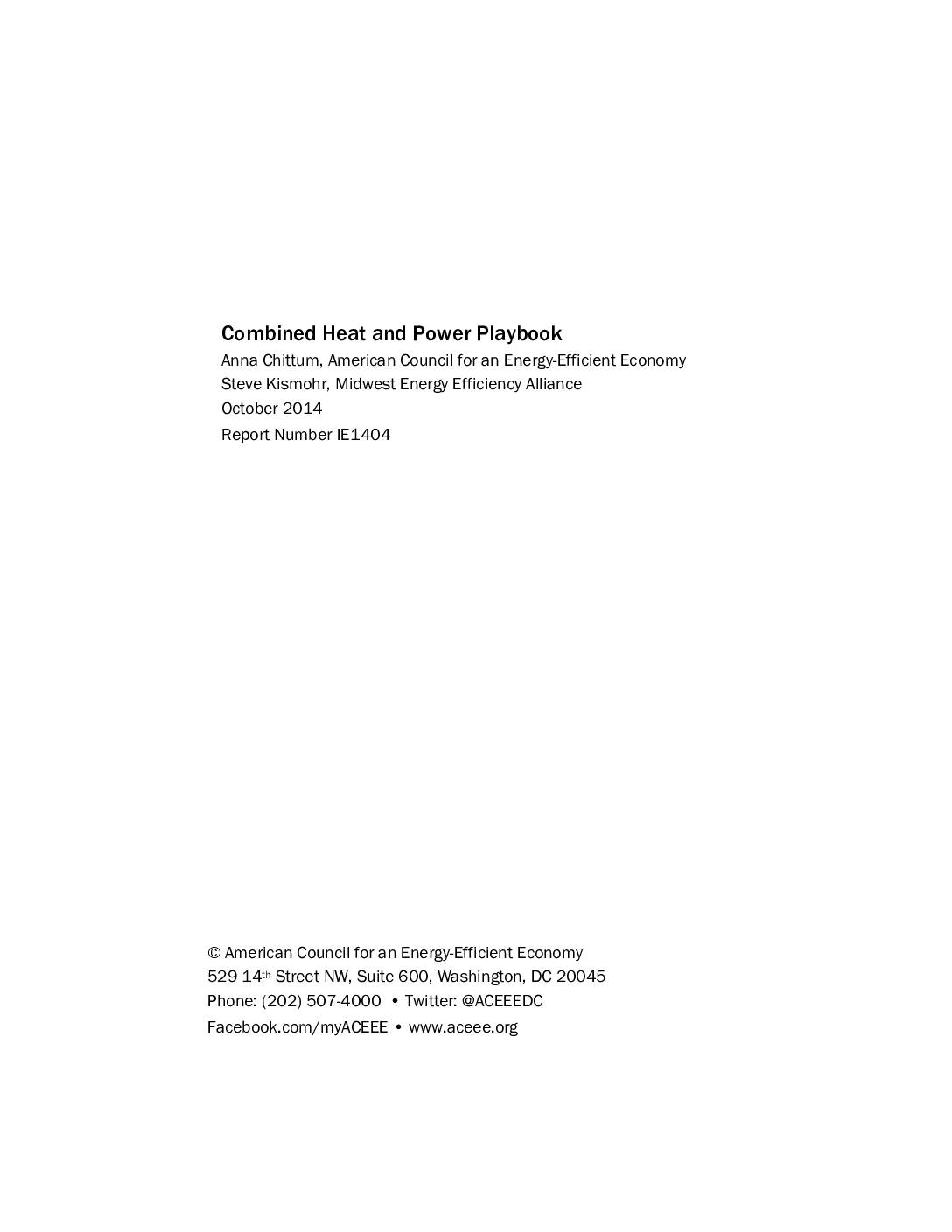Combined heat and power (CHP) technologies, also known as cogeneration, generate electricity and useful thermal energy in a single integrated system. CHP projects can offer substantial economic, environmental, and energy benefits to their owners, including reduced overall energy costs, improved energy system reliability, and reduced thermal energy consumption. Local communities, public entities, and private companies are all potential CHP system owners.
Municipalities interested in deploying CHP and district energy can draw on a variety of resources. This document gathers these resources and delineates which are most useful at particular periods of project development and to overcome barriers and challenges. We primarily address CHP, but we also point to resources for district energy projects when they are relevant. We also include examples of CHP and district energy deployment activities undertaken by municipalities around the country. The ultimate goal of this report is to help municipalities as they move CHP projects forward in their communities and take advantage of the many opportunities for local CHP and district energy.
Share this

Sectors: Buildings, Cross cutting, Industry, Power sector, Renewables
Country / Region: Northern America, United States
Tags: bioenergy cogeneration, cogeneration, domestic heating, economic cost, electricity generation, energy, heating, local communities, projectsKnowledge Object: Publication / Report
Published by: ACEEE
Publishing year: 2014
Author: Anna Chittum, Steve Kishmohr
